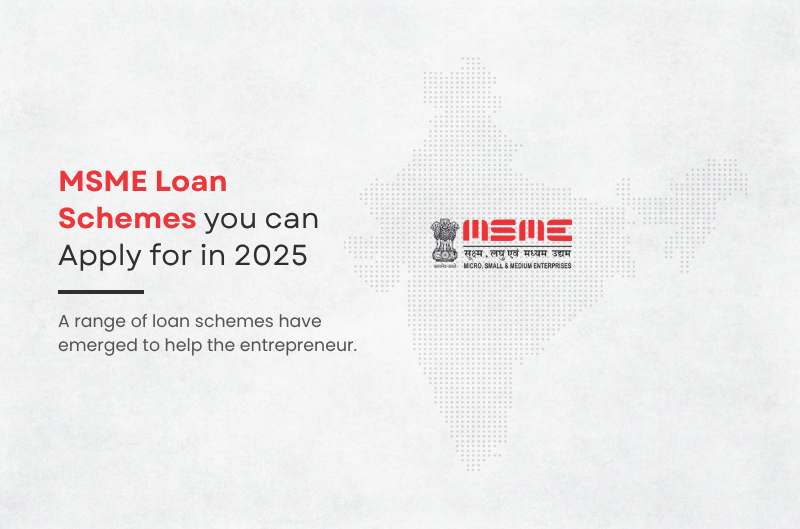Top 5 Business Tools for Startups: In today’s competitive, high-speed Indian startup environment, technology is not a bit player—it’s the engine of efficiency and growth. Having the proper business tools from the start can mean the difference between an agile, scalable business and one bogged down by manual processes and improper data handling. For Indian startups in 2025, the focus is on an intelligent, powerful technology stack that is as much about local regulatory compliance as it is about being easy to use and highly functional. The five essentials are summarized below in the must-have areas of CRM, finance, project management, and HR. This guide highlights the Top 5 Business Tools for Startups that are essential.
Zoho CRM
Category: Customer Relationship Management (CRM)
Zoho CRM, one of Top 5 Business Tools for Startups, is the Indian market leader, with a robust set of features and a deep understanding of local business needs. As part of the complete Zoho ecosystem, it provides an integrated platform for managing all aspects of the customer life cycle, from lead capture to post-sales support.
- Pros: Its standout feature is a truly “forever free” plan that fits bootstrapped startups to a “T”, offering basic features for three users without any time limits. The platform is highly customizable so that startups can design sales pipelines, dashboards, and reports to fit their unique business models. Moreover, its integration with over 50 other Zoho applications, such as Zoho Books for accounting and Zoho Projects for project management, gives a unified and streamlined workflow. Such interoperability gives the capability to automatically sync sales information with finance and marketing, and prevent silos and manual data import. This contributes significantly to business automation India.
- Cons: While the complete set of features is a huge advantage, it also has a steep learning curve for fresh users. There are too many settings and parameters, and it may take some time to utilize the full potential of the platform. In addition, for very small-scale businesses or solo operation freelancers, the complete set of features is overkill and could lead to using less than the full potential of a good tool.
- Pricing: Zoho CRM’s free version is a boon for early-stage startups. When you need to scale, paid tiers are affordable, from around ₹750 per user per month (annual billing). These tiers open up features like sales forecasting, custom reporting, and marketing automation.
Know more, about Zoho CRM, at Zoho CRM: Features, Benefits, Pricing & Client Management
TallyPrime
Category: Finance & Accounting
TallyPrime is hands down the king of Indian accounting software India. While its interface may be dated to some, its Indian financial rule support is simply unbeatable, and it’s a necessity for any Indian money-handling startup.
- Pros: The most prominent advantage is its built-in, hassle-free GST and statutory compliance. TallyPrime does everything, starting from the generation of GST-compliant invoices and e-invoices to calculating tax liabilities and making returns filing easy. This feature significantly reduces the risk of errors and penalties. Its robust, tried, and trusted functionality does everything, from inventory and payroll to accuracy that has won the trust of millions of businesses. The software is also an industry standard for chartered accountants of India, so it’s not difficult to leave your books in the hands of a professional.
- Cons: In comparison with its modern, cloud-native competitors, TallyPrime is mostly a desktop application. While it can synchronously be cloud-based, it lacks the live, seamless cooperation of fully web-based applications, which can be a disadvantage in remote teams. Its keyboard-centric interface can also be clumsy and unaccommodating to younger generations of users who have grown up with graphical, point-and-click applications.
- Pricing: TallyPrime is typically a one-time perpetual license buy with an annual subscription for support and updates. It offers a single-user license for approximately ₹18,000, which might be an expensive upfront payment for a cash-strapped startup.
Asana
Category: Project Management
Asana is currently the leading startup project management tool globally, and its fast-paced, visual interface is attractive to flexible Indian teams. It’s designed to get teams on track and in order so everyone knows what they’re doing and by when. It’s one of the best productivity tools for managing workflows.
- Pros: Ease of use and multiple views of Asana—Kanban boards, Gantt charts (Timelines), and Calendars—allow teams to view their workflows in the most suitable format for their type of project. A marketing team, for instance, may want to use a board view, while a product team may use a timeline to track a launch. Its automation feature is another plus, which allows teams to automate mundane tasks like assigning a reminder or follow-up, boosting productivity. This also enhances business automation India.
- Cons: Asana’s free plan is very generous but feels constrictive when a startup’s requirements expand. Key features such as custom fields, forms, and advanced reporting are restricted to paid plans. This translates to a huge cost increase as the company expands, leading to a cost tradeoff between an expensive upgrade and a search for a new tool.
- Pricing: Asana has a free plan for 15 members, which is excellent. The paid “Starter” plan is around ₹850 per member per month (annual billing), and higher-cost plans for heavier-duty project management needs.
Keka
Category: Human Resources (HR)
For any Indian startup looking to formalize its HR functions, Keka is a best-in-class option. The cloud-based software is designed specifically to meet the intricacies of HR administration in India, ranging from payroll to compliance and employee engagement. It’s a prime example of effective SaaS for startups.
- Pros: Keka’s largest advantage is India-centric compliance automation. It makes complex pay calculations like Provident Fund (PF), Employee State Insurance (ESI), and TDS easy so that your startup remains compliant. The clean, employee-centric interface offers a wonderful employee experience, with self-service leave application, pay slip download, and tax filing facility. It is an end-to-end, comprehensive solution that takes care of the entire employee life cycle.
- Cons: The scope of the platform is costly. Keka is on the upper side of the pricing spectrum for HR software in India, which could be out of reach for very small, bootstrapped firms. Its optimal use is also generally best for firms that have grown to the point where the cost won’t be a burden.
- Pricing: The cost of Keka is not publicly disclosed and is quote-based depending on the size of the employees and the modules a company wishes to have. They do provide a free trial for users to try out the software.
HubSpot CRM
Category: Sales & Marketing CRM
While HubSpot is a global giant, its free CRM is a wonderful resource for Indian startups that have an inbound-growth strategy. It is an excellent starting point for sales and marketing teams.
- Pros: Its largest selling point is its “free forever” plan with unlimited seats. It’s not any kind of limited trial; it’s a full-featured CRM with contact management, deal pipelines, live chat, and email tracking, and it won’t cost you a thing. This is a value that can’t be trumped by a startup that has no marketing budget. Its integration with other HubSpot tools is so tight that as a business expands, it can add marketing or sales automation features without having to move data. This makes it a powerful productivity tool.
- Cons: The freemium CRM is good, but it’s meant to nudge customers into HubSpot’s paid “Hubs” (Marketing, Sales, Service). The paid plans are much more expensive, and the price can add up rapidly as an organization expands. While the freemium tool itself is excellent, a company might receive a huge bill in the future.
- Pricing: Its core CRM is free. Its paid options for the various “Hubs” start at around ₹4,150 per month, and the costs rise based on features and contacts.
Know More at HubSpot CRM: Features, Free Plan, Pricing & Benefits for Businesses
How to Choose the Top 5 Business Tools for Startups
Choosing a tool is a conscious decision. We have a template below to assist you in choosing:
- Identify the Pain Point: Don’t chase a trend. Identify the most important operational issue you must address. Is it unorganized sales leads (CRM tools), unruly finances (accounting software India), or undefined project responsibilities (project management and collaboration tools)?
- Evaluate Scalability and Price: Look at those tools for startups that have a simple mechanism to scale. Can the tool scale just as well to a team of 50 as it can to a team of 5? Does it have a freemium pricing model or a low upfront cost to test before committing to a massive bill?
- India-Specific Priorities: For HR and accounting, strict adherence to local laws is unavoidable. Relying on a globally accessible tool that is not natively GST or PF compliant will result in expensive mistakes and a massive admin headache. This is critical for any startup tools India.
- Evaluate Integration Capabilities: Your business is an ecosystem. Select business tools that can “speak” to one another. Tools that integrate with your other technology can save hundreds of hours and avoid data silos. With this strategy framework, Indian startups are able to make knowledgeable decisions that leverage their teams, optimize their processes, and establish a sustainable platform to thrive.















